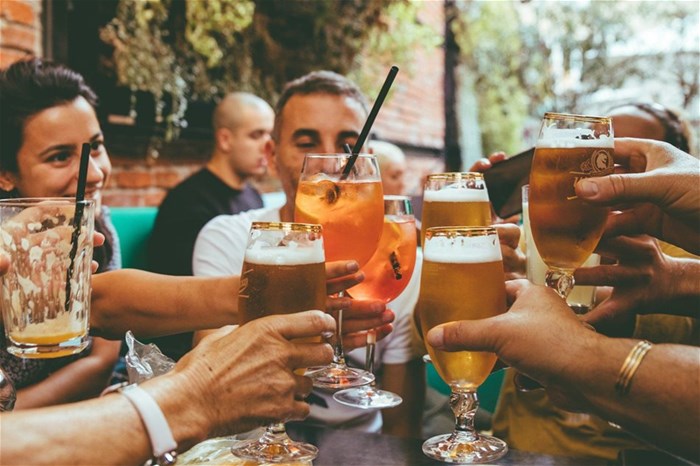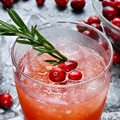For some odd reason, not drinking alcohol has acquired a sort of negative connotation in the general public that leaves many who’ve decided not to drink feeling pressured, isolated or uncomfortable when in social settings. And, with drinking being relatively common (and often expected) at most social events, this can be quite an awkward situation to navigate for non-drinkers, even deterring them from socialising or participating in friend, family or community activities at all.
Very often, non-drinker sand even those who have opted to not drink at one single occasion have dealt with the negative reaction from friends, colleagues, or family members who either get upset when you say you’re not drinking or imply that you are being boring or a “party pooper” by not taking part.
However, it’s important to recognise that it is perfectly acceptable to say no to drinking alcohol, no matter the situation, who you’re with or why you’ve decided not to drink.
Shift in alcohol consumption
“An increasing number of people, especially the younger generation, are joining more sober, curious and mindful drinking movements,” says DrinkNil CEO, Ayanda Mvandaba.
“As more people choose to abstain from alcohol, it signals a cultural shift towards more mindful consumption and the prioritisation of health and wellbeing.”
With months like Ocsober and Dry January has gained significant popularity in recent years, absolute non-drinkers make up nearly half the world’s adult population - 35% of men being non-drinkers and 55% of women.
According to Cleveland Clinic and addiction psychiatrist Akhil Anand, the lessening stigma around mental health and growing awareness of wellbeing, along with a shift towards much healthier lifestyles, has played a big role in this growing trend of sober living.
“Despite this increase in people choosing to live a sober life, it can still be so difficult for non-drinkers to defend their decision not to drink in social situations, and many end up giving in to the pressures to just take part in order to not feel left out,” adds Mvandaba.
She notes that while people who respect you should respect your decisions (whether they agree with you or not), there are some easier ways to swim through the choppy waters of socialisation when sober.
1. Stand firm in your decision
It may seem an obvious thing to say, but it can be difficult to feel like you’re letting people down or “bringing down the mood” with your decision to not drink in a social setting. But don’t waver. Be confident in your decision and remember it’s your choice and you don’t have to do anything you don’t want to.
“While you do not owe anyone a single explanation as to why you have decided not to drink, you should also be prepared for questions if it is revealed that you aren’t,” says Mvandaba. “Some people might be judgemental, but others might simply be curious. It’s best to have a simple response ready that answers questions without giving too much information and allowing everyone to move on such as ‘I just prefer not to’ or ‘I’m taking a break’.”
2. Find a designated sober advocate
Much like designating a trusted friend to be your health advocate who can lend support and speak up for you when needed, it can be useful to confide in a friend or family member attending the same event as you about your decision to not drink, your concerns around expected pressure to drink alcohol, and ask them if they’ll back you up if an awkward situation arises.
“Having a supportive friend, family member or group can make it much easier to resist any social pressure to drink when you don’t want to but have difficulty standing your ground,” adds Mvandaba
3. Have a go-to non-alcoholic drink
One of the most effective ways to navigate the pressure to drink when you’re staying sober is to not have to say that you’re not drinking at all.
For a long time, the only drinking options available to non-alcoholic drinkers was either water, cooldrink or more noticeably tea or coffee. This made it really obvious that you weren’t drinking alcohol and would often lead to people asking questions about whether you’re not drinking, finally resulting in the dreaded questions of “why not" or the pressures to just drink with everyone else.
But, today, non-drinkers have much more choice in drinks that both quench their thirst while also helping to avoid this situation altogether by giving the appearance that you’re partaking in drinking along with everyone else.
“Alcoholic-free drinks have become a lot more sophisticated than before, not only mimicking the appearance of alcoholic drinks in their packaging and branding but also emulating a variety of delicious flavour profiles that are pleasing to drink,” says Mvandaba.
Choosing the right alcohol-free drink, some containing flavours found in the real thing such as juniper, rose, coriander in gin might have you fooling a gin drinker into thinking they’re sipping on the real thing - with the added benefit of not losing your inhibitions or getting drunk. Non-drinkers also have a selection of non-alcoholic wines, sparkling wines, beer, and cider to choose from.








































